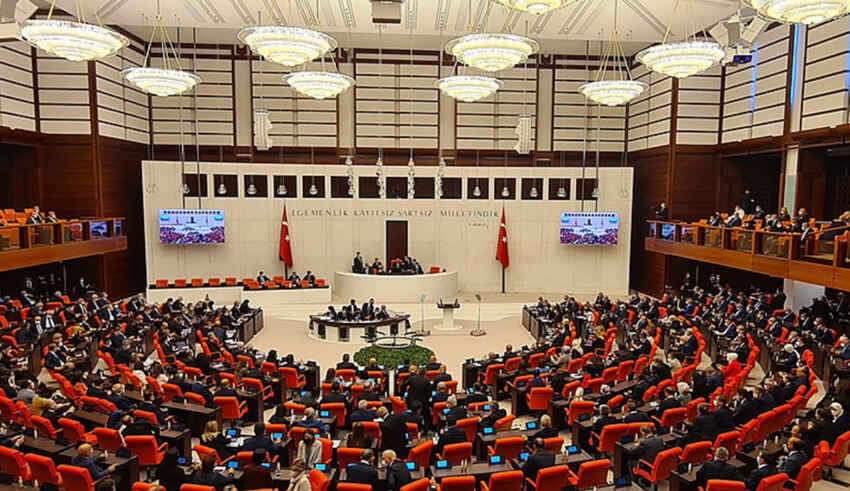
Turkey recently enacted ‘disinformation laws’ which essentially give authority to the Turkish Government to control, restrict and/or reprimand online free speech. While Turkish President Recep Tayyip Erdoğan’s government has always been on the wrong side of controversies regarding free speech, putting it into law is concerning, especially in the days leading up to the 2023 Elections. Disinformation laws have been infamously used in ‘democracies’ to suppress dissent and opposition. While the need to contain misinformation was highlighted during Covid19 and the US Presidential Elections 2021, the ambiguity in defining ‘disinformation’ is essentially a tool in the hands of the government to curb free speech and journalism. The law has already garnered criticism from the press around the globe and is certain to aggravate Turkey’s rankings in the World Press Freedom Index, where it currently ranks 149 out of 180 Countries. However, the major concern is how restrictions on free and fair journalism may have a dire impact on the upcoming elections, hampering the media’s ability to report or cover the information fairly.
Turkey had already placed restrictions on Internet usage and social media access through amendments in 2020, pressuring tech companies to comply with government censorship and arbitrary demands for user data, both of which would violate the UN Guiding Principles on Business and Human Rights. However, many have succumbed to the pressure bullied upon by the Turkish Government. The latest disinformation laws are only one among the many tactics imposed to curb freedom of speech and expression in Turkey. The opposition has already approached the courts of law to challenge the act. However, in a quorum of 15 judges, 10 have been appointed by the current administration, and their ability to independently impart justice will be put to test in the coming days.
While it is not uncommon that nation-states, in the name of morality, health and public order, have imposed such draconian laws on freedom of speech and expression. However, this move may have a significant impact on Turkey’s candidature in the European Union. The situation over the Aegean and years of allegations about human rights violations have deteriorated the EU and Turkey’s relationship, stated the latest European Commission’s Report. However, Turkey is well aware of its significance in the EU in relation to trade and the refugee crisis in Europe. Therefore, criticism in paper and stalling of membership seems to have little deterrence on the Turkish administration.
However, lessons of misinformation laws wreaking havoc can be traced to many democracies around the globe. The more restrictions a country places on freedom of expression, the more vulnerable its populace becomes to false information. Russia, India, Malaysia and Singapore are all examples of how a crackdown on freedom of speech has overarching consequences. Restricting free speech and information and imposing limits on free journalism may lead to an increasing sense of fear and paranoia within society. Citizens of Turkey are well aware that these crackdowns are a violation of many of their fundamental rights, and no amount of internet bans and misinformation laws can erase the government’s economic fallacies. Statutory limitations on freedom of speech can erode trust in the administration and its institution. Also, the Constitutional Courts of Turkey may soon be riddled with cases under these disinformation laws due to the ambiguity of what ‘misinform’ is, and prosecutors will struggle to prove intent. Imposing such an arbitrary definition will burden the judicial system.
The Turkish Government has cited EU laws to support its disinformation laws. However, the EU does not criminalize misinformation and has a multi-stakeholder approach to combating the same and efforts to strengthen media literacy. If the intent of the Turkish Government is to curb misinformation, the inspiration can be drawn from this multi-stakeholder approach of the European Union, including outsourcing anti-disinformation efforts to independent networks to attain neutrality. The Turkish Government must especially be careful of quashing freedom of speech and experience, especially in the light of protests in Iran and the waves it is creating around the globe. The laws could potentially do more harm than good for their intended purpose as well as actual purpose.
References
Turkey: new ‘disinformation’ law could jail journalists for three years, The Guardian (October 13, 2022) https://www.theguardian.com/world/2022/oct/13/turkey-new-disinformation-law-could-jail-journalists-for-3-years
Reporters without Boarder Index 2022, https://rsf.org/en/index
Claesson, Annina. “Coming Together to Fight Fake News: Lessons from the European Approach to Disinformation”. Center for Strategic and International Studies. Retrieved on October 17, 2022 https://www.csis.org/coming-together-fight-fake-news-lessons-european-approach-disinformation
By The European Institute for International Law and International Relations.














